Source- http://minneapolis.fbi.gov/dojpressrel/pressrel10/mp122010.htm
A Deerfield, Illinois couple and a 39-year-old man, who previously lived in Prior Lake, were sentenced earlier today in federal court in Minneapolis in connection with a scheme to defraud Richfield-based Best Buy Co., Inc., by over-billing the company for computer parts. United States District Court Chief Judge Michael J. Davis sentenced Russell Adam Cole, age 50, to 180 months in prison on one count of conspiracy to commit mail fraud and wire fraud, 12 counts of mail fraud, five counts of wire fraud, four counts of tax evasion, one count of conspiracy to commit money laundering, and one count of conspiracy to defraud the U.S. Abby Rae Cole, age 53, was sentenced to three years of probation on one count of conspiracy to commit mail fraud and wire fraud, one count of conspiracy to defraud the United States, and four counts of tax evasion. Judge Davis also sentenced Robert Paul Bossany, now of Chetek, Wisconsin, to 90 months in prison on one count of conspiracy to commit honest services mail fraud and one count of money laundering for his role in defrauding Best Buy.
The couple was originally indicted on July 20, 2009, and convicted by a jury on June 3, 2010, following a 17-day trial. Bossany was charged on December 15, 2008, and pleaded guilty on January 29, 2009.
Following today's sentencings, Shawn S. Tiller, Inspector in Charge of the Denver Division of the U.S. Postal Inspection Service ("USPIS"), which covers the Twin Cities, said, "The sentences handed down today should send a message to would-be criminals who are considering using the U.S. mail to perpetrate their fraudulent schemes. The U.S. mail is still one of the most trusted means of communication in this country, and the U.S. Postal Inspection Service will continue to uphold that public trust."
Best Buy offers repair services on products, including personal computers. Beginning in the early 2000s, it devised an automated, online, reverse auction system, called the Parts Procurement Network ("PPN"), in an effort to obtain computer repair parts quickly and at the lowest possible prices. Through the PPN, vendors received access to a "needs" file, which listed the computer parts Best Buy wanted. Those vendors submitted bids on the parts they wished to supply, quoting both availability and price. After each bidding period, Best Buy determined which vendors had won the orders. Those vendors then had to invoice Best Buy, through a third party, at the prices quoted in their bids.
Because of the PPN, Best Buy became the primary customer of Chip Factory, Inc., a computer parts distribution company owned and operated by the Coles. In fact, from June of 2003 through August of 2007, Best Buy accounted for the vast majority of Chip Factory sales. Trial evidence proved, however, that in an attempt to win orders to supply parts to Best Buy, the Coles routinely caused Chip Factory to quote fraudulently low prices in its PPN bids. After winning bids, the Coles also regularly caused Chip Factory to invoice Best Buy, through the assigned third party, at prices in excess of those quoted during the bidding process. As a result, the Coles caused Chip Factory to invoice Best Buy for $41 million more than Chip Factory actually had bid through the PPN program.
In addition, trial evidence showed that Chip Factory often shipped Best Buy used, damaged, or defective parts instead of new ones, as they pledged to do through the PPN program. And when Best Buy returned damaged, defective, or unneeded parts, Chip Factory failed to provide proper credit.
In his plea agreement, Bossany, an employee of Best Buy during the course of the scheme, agreed that he had conspired with the Coles to defraud Best Buy. While employed at Best Buy, Bossany was responsible for managing the purchase of computer parts from outside vendors that participated in the PPN program. In that capacity, he was Best Buy's primary contact with Chip Factory. He provided the Coles with internal Best Buy information, including communication concerning the PPN as well as other vendors. Bossany also hid Chip Factory's pricing practices and deflected issues and suppressed concerns raised about Chip Factory at Best Buy.
Chief Judge Davis concluded that there was no question but that Bossany lied during his testimony in the Coles' trial. As a result, he increased Bossany's sentence based on obstruction of justice and denied Bossany a reduction for acceptance of responsibility, despite Bossany having pled guilty. Bossany did receive somewhat of a reduced sentence, however, based on his assistance to the government in wearing a wire and recording approximately 19 conversations with Russell Cole, conversations which the government played during trial.
In return for assisting in furthering the scheme, Bossany received and accepted bribes from the Coles, including large amounts of cash, checks, and property, including gift cards, a Harley- Davidson motorcycle, and an all-terrain vehicle. In addition, the Coles sent Bossany magazines, compact discs, and DVDs in which cash, checks, and gift cards were hidden. To conceal the scheme, those items were sent to Bossany's home address rather than his office. And, on a number of occasions, Chip Factory employees assisted the Coles in preparing the packages for Bossany.
In addition to defrauding Best Buy, the Coles also evaded federal taxes for 2004 through 2007 and deprived the Internal Revenue Service ("IRS") of its function to collect taxes. They did so by understating the company's gross receipts in a number of ways. For instance, they resold to their suppliers the computer parts that Best Buy had returned. Then, they instructed the suppliers to make payments for the parts to Russell Cole personally instead of to Chip Factory. Upon receipt of the payments, the Coles deposited the checks into an account separate from the company. Between 2004 and 2007, for example, one Chip Factory vendor made checks out to Russell Cole personally that totaled more than $900,000. The Coles omitted that income as well as similar income from their corporate and individual tax returns.
Furthermore, Russell Cole misrepresented on individual and Chip Factory tax returns the sales and profit from an eBay business he ran. Through that business, he sold computer parts, including parts purchased by Chip Factory specifically for Best Buy. After the parts were sold via the Internet, he directed Chip Factory employees to send other products to Best Buy service centers, including parts that were used, damaged, or defective. From 2005 to 2007, Russell Cole understated his net income from the Internet business by more than $1.8 million.
In addition to understating Chip Factory gross receipts in general over a four-year period, the Coles understated the company's gross receipts by more than $3 million for 2006 alone. To accomplish that, the Coles represented to their outside accountant that the value of parts returned by Best Buy during the year had not been noted in the company's books. However, those returns had indeed been recorded. Nonetheless, in late 2007, the Coles filed amended federal individual and corporate returns for 2006, citing the false information. The Coles were motivated to lower their tax liability at that time because Best Buy had recently discovered the bidding fraud and had terminated its relationship with Chip Factory.
The Coles also overstated on Chip Factory tax returns the cost of goods it sold. To that end, they directed company employees to inflate the cost of parts purchased from suppliers and enter false purchase orders into the company's books and records. Abby Cole personally participated in inflating the cost of Chip Factory purchases. Moreover, the Coles paid for a large amount of personal expenses, including credit card debt and a number of luxury purchases, such as highend jewelry and month-long stays at the Bellagio hotel in Las Vegas, with Chip Factory funds. They then classified those expenditures as business expenses on the company's tax returns.
************************************************************************
Report IRS Tax Fraud by Calling 1-888-482-6825 or by visiting
www.irsrewards.com
Monday, December 20, 2010
Russell Adam Cole, Abby Rae Cole and Robert Paul Bossany, Sentenced for Conspiracy to Commit Mail Fraud, Wire Fraud and Defrauding Best Buy
Posted by
Webmaster & KiKi Joe
at
8:41 AM
![]()
Subscribe to:
Post Comments (Atom)
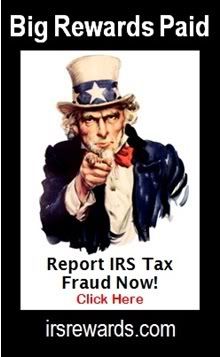



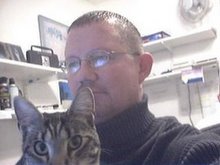
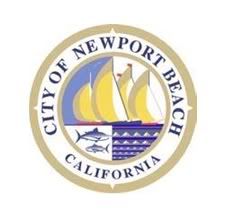

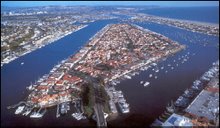
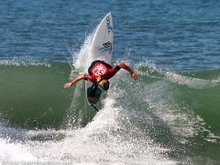




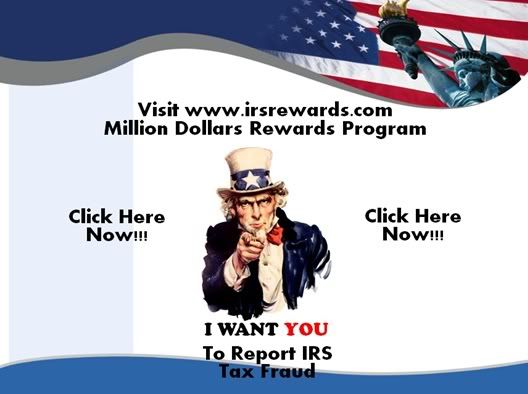

No comments:
Post a Comment